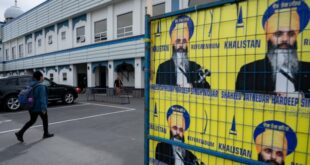These initiatives make Black excellence a core part of learning Black history

Learning Black history at school hasn't always been a great experience for Salome Asea's kids, often because the lessons fell short on context or perspective.
The Edmonton parent recalls, in one instance, her elder son's discomfort with a lesson back in Grade 1 or 2 about slavery and the songs sung by enslaved people. Meanwhile, her younger son had a somewhat baffling early lesson about sports pioneer Jackie Robinson, in which the first-graders didn't quite grasp his importance as the first Black player in Major League Baseball.
"All the kids were really confused about 'Why are we learning about this random baseball player?'" she said.
Black history is making its way into more classrooms, but "there is still a long way to go to embrace it and to make it really age-appropriate," she added, saying that it is also a problem if the sole focus is hardship and struggle.
"Trauma isn't what's central to the Black experience. It is definitely a part of the human experience and what we have definitely endured, but there's so much more that we can also talk about," said Asea, who's also the executive director of the Council of Canadians of African and Caribbean Heritage (CCACH).
There's growing recognition of the need for Canadian students to learn a broader picture of Black history, culture and contributions — and often people working outside of traditional classrooms are the ones pushing the conversation forward during Black History Month and beyond.

Black history around the world
Asea's kids, Isaiah and Samson, are getting a deeper Black history education through AfroQuiz, a long-running trivia competition that's become a much-anticipated annual CCACH initiative — think Black Panther meets Harry Potter.
After participants from Grade 1 through 12 are sorted into different "houses," they begin studying Black history from Canada and abroad, tied to each year's particular theme. Over several weeks, students score points by completing different tasks — for instance, sharing an amazing tidbit they've learned with a friend or their class at school.
A final, late-February event sees top representatives from each house compete in a live, Jeopardy!-style event, with all the participants cheering them on. "They leave Black History Month knowing a bit more about the history of Black people in this country and abroad and get a sense of self-esteem," Asea said.
Despite being an intense bout of study on top of regular school, students return again and again, with the earliest contestants now sending their own kids through.
CCACH has also fielded some outside interest — non-Black students sometimes join AfroQuiz, and various schools have reached out (one created an Indigenous history spin-off, while another created a successful pilot for Black students before then expanding into a global cultural celebration).
Black youth seeing themselves reflected
That goal of stoking cultural pride and future aspirations is a key part of Black Excellence Day, an annual initiative that's grown to include more than 30,000 students across B.C.
In a province with a smaller Black community — just 1.2 per cent of the population according to the 2021 census — "often we hear there's just not enough need, there's not enough population for us to have Black events or talk about Black history," said Kamika Williams, president and co-founder of Ninandotoo Society, the main force behind Black Excellence Day. (Ninandotoo is based on the Swahili translation of "I have a dream.")
"And so often people — including youth — feel very isolated in British Columbia," she said.

The society chose Jan. 15 for Black Excellence Day to connect it with American civil rights leader Martin Luther King Jr.'s birthday and so the day would take place before Black History month itself — in part to inspire educators to "get into the habit" of learning and teaching about historical and contemporary Black figures outside of February, Williams explained.
B.C. has recognized Black Excellence Day for the last three editions. For this year's hybrid event, Ninandotoo partnered with the Burnaby School District to livestream a presentation to thousands of public and private school students across the province, while more than 75 Black students joined notable speakers, performers, educators and others in-person.
Educators in Alberta, Saskatchewan, Ontario and Nova Scotia have also joined in, with Ninandotoo hoping to make Black Excellence Day a national celebration for all Canadians to join.

Black people have made significant contributions to both Canada and B.C., but much of this remains unacknowledged, which is why Williams wants to see a well-rounded Black history curriculum mandatory in schools. "It's important to know that we did have slavery in Canada for 200 years, but that can't be all that we learn," she said.
Learning to make change
At the Toronto District School Board (TDSB), a course hosted by its Centre of Excellence for Black Student Achievement (CEBSA) goes a step further by having students learn about Black leaders and work toward being leaders themselves.
Politics in Action: Making Change is an elective, senior high school politics class that starts virtually this month as a night school offering. Open to high schoolers in the TDSB and running to June, the course explores the topic of Canadian leadership from a perspective of Black identity.
A typical assignment for Making Change might have students researching a Black leader and their skills, but they'd also reflect on their own leadership skills, explained CEBSA principal Jeffrey Caton.
In past editions, teens enrolled have subsequently moved into two other CEBSA initiatives: a youth participatory research project (one cohort staged a conference at summer's end) and a summer leadership program, where students land summer gigs in a field of their interest.

How schools tackle Black history and Black people's contributions — going beyond trauma and racism to also include accomplishment and joy — that's a fundamental shift that needs to happen, according to Caton.
"Focusing on Black joy, focusing on positive Black identity, changing the narrative or having a counter-narrative there about what we actually do, what we actually have accomplished and what we will accomplish in the future … it's important for [students] to see themselves in that light. It's important for them to talk about themselves in that way."

Back in Edmonton, Samson and Isaiah Vanderpuye — Salome Asea's sons and each a past AfroQuiz champion — pore over study notes under their grandfather's tutelage ahead of the 2024 event.
Samson, 9, has enjoyed this year's theme of royalty (the Queen of Sheba and Queen Nzinga made an impression), but he says making new friends during the weekly group study sessions is also a highlight.
For his part, Isaiah appreciates the breadth, depth and variety of what they're learning. While he recalls learning a bit about Martin Luther King Jr. and Canadian soccer star Alphonso Davies at school last February, his AfroQuest prep this year has introduced the Gr. 7 student to Charles Hamilton Houston and his legal brilliance in fighting school segregation in the U.S.
"They do talk about [Black history at school], but there's not really much of it … It was mainly focused on slavery or all the bad things that happened," explained the 12-year-old junior high student.
At AfroQuiz, "we learn a whole different point of view, like celebrations and peoples and how their countries and cultures thrive."

For more stories about the experiences of Black Canadians — from anti-Black racism to success stories within the Black community — check out Being Black in Canada, a CBC project Black Canadians can be proud of. You can read more stories here.

Add some “good” to your morning and evening.
Start the day smarter. Get the CBC News Morning Brief, the essential news you need delivered to your inbox.
The next issue of CBC News Morning Brief will soon be in your inbox.
Discover all CBC newsletters in the Subscription Centre.
*****
Credit belongs to : www.cbc.ca
 MaharlikaNews | Canada Leading Online Filipino Newspaper Portal The No. 1 most engaged information website for Filipino – Canadian in Canada. MaharlikaNews.com received almost a quarter a million visitors in 2020.
MaharlikaNews | Canada Leading Online Filipino Newspaper Portal The No. 1 most engaged information website for Filipino – Canadian in Canada. MaharlikaNews.com received almost a quarter a million visitors in 2020.







